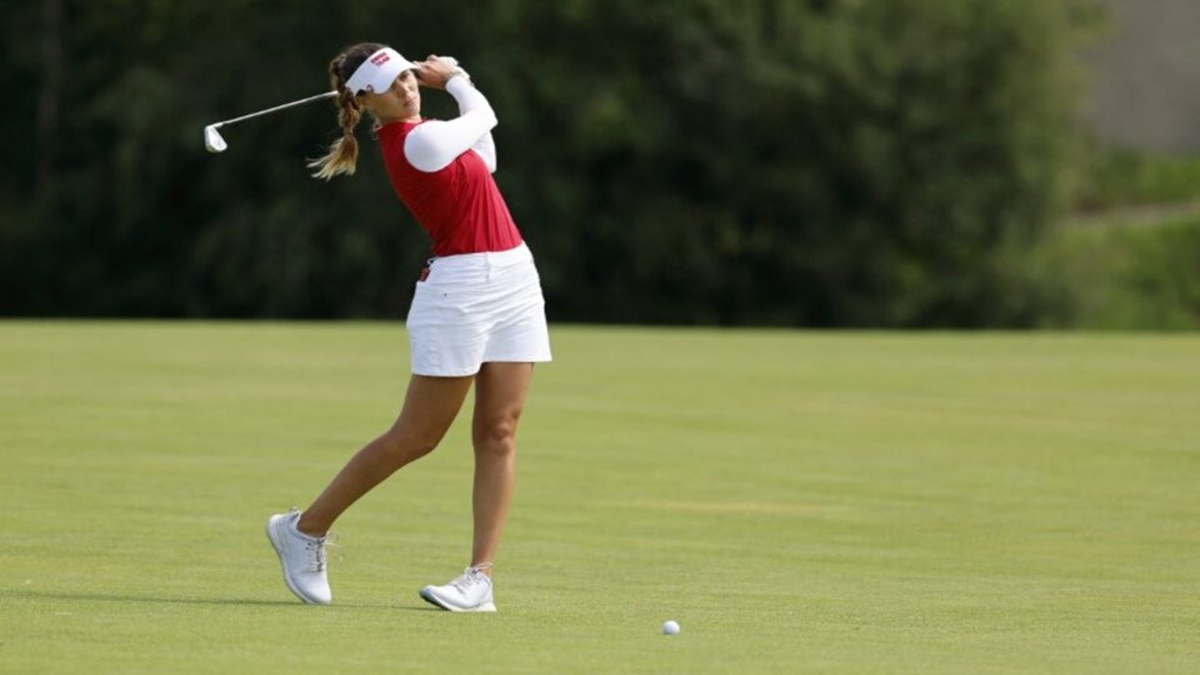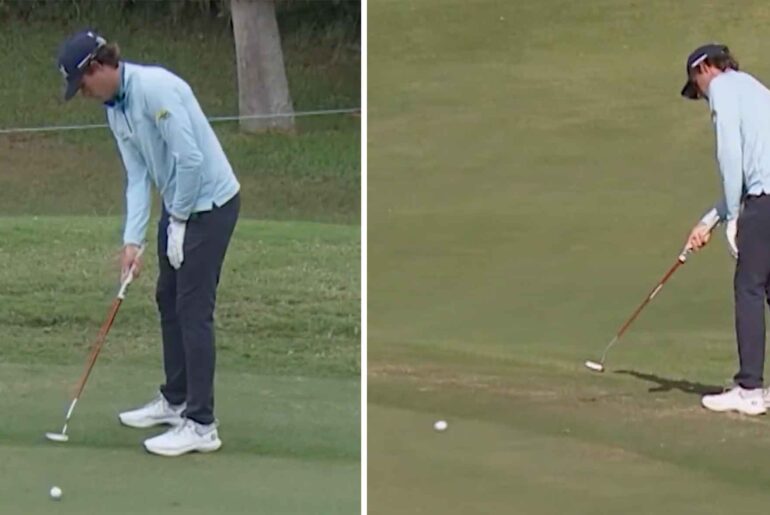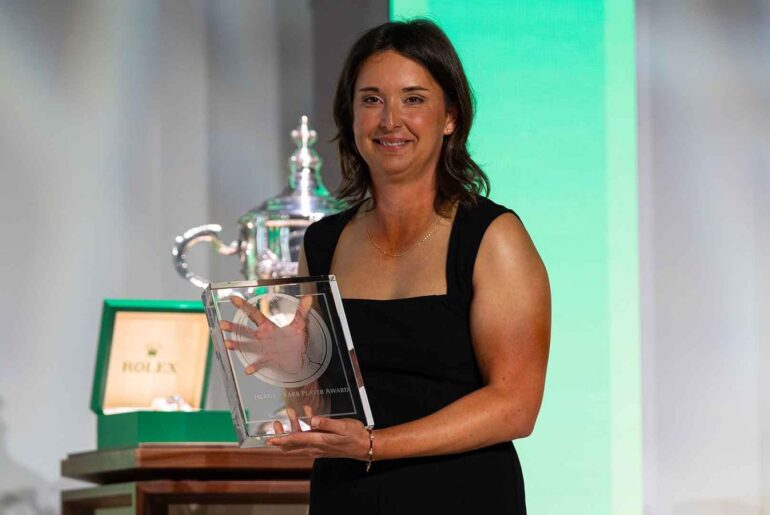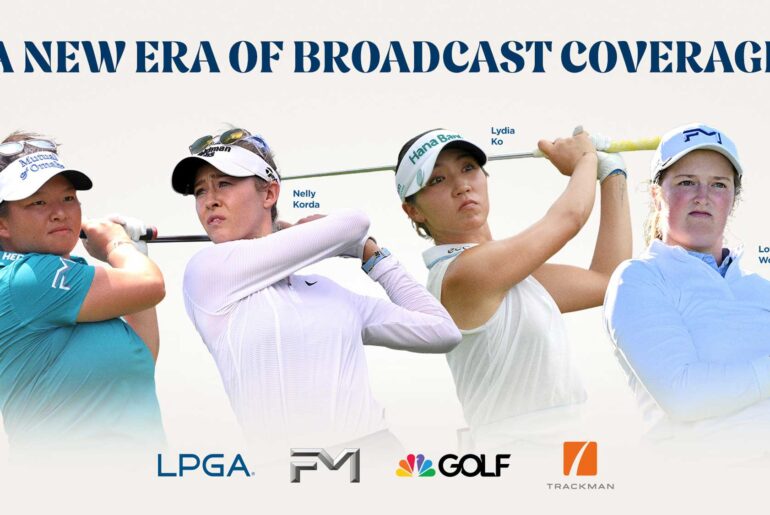“I love watching women’s golf. It’s so much more relatable,” says a member on the r/golf subreddit. It’s a comment that you’ll find repeated over and over again on the popular online forum. The main yardstick for that comparison is women pros’ shot lengths being somewhat similar to the amateur (male) players. Or so the men would like to believe. That sophism is founded on a false comparison — yes compared to the men, women pros shot lengths are relatively achievable — and delusion — most of us have incredibly rose-tinted opinions about our own golfing abilities. But you can’t blame the men. We’re biologically wired to view length off the tee as the the most important yardstick for gauging golfing abilities are driving distances. The beauty of delicate chips and safe play isn’t lost on us, but a bomb off the tee? That’s the most alpha thing you can do on a golf course.
Which is why, while playing with a woman pro at a pro-am is just fine; being outdriven by one is rather humbling. A few years back, at an Audi Quattro Cup event at Hua Hin in Thailand, the organisers invited Tvesa Malik, then an amateur, to have a long drive competition with every group that played a particular hole. Now a ‘long drive,’ competition is a bread-and-butter sub-event of most corporate golf events. But in this case, there was a palpable tension on the tee, with most players pulverising the ball with all their might to avoid being out-driven by a young lass. Needless to say, that intent did nothing for swing tempo and most of the field (your columnist included) hit wild drives that ended up everywhere but the fairway. Malik wasn’t insanely long off the tee, but she hit every drive right down the middle. And therein lay the rub: golf isn’t about occasional brilliance but consistency. Corporate golfers in India play an enviable number of events, but I’m sure that memory still rankles those who played, and lost, to Malik.
But I digress. The discussion on reddit was fired by an increasing interest — both by the media and the fans — in women’s pro golf. I reckon that neither the women players, nor the professional tours they play on, are complaining about better viewership numbers for event broadcasts. As golf viewership goes, there is something about women’s golf that takes the game’s appeal beyond people who love and play the game. Remember Aditi Ashok’s heroics at the 2020 Olympics? I have never had so many people bring up that performance over dinner table conversations and inquiries about how they can get their kids into golf. That one event did more to take golf to the middle class than anything any Indian professional, man or woman, has ever done. Of course that had to do with the fact that it was at The Olympics but it doesn’t take away from the fact that Ashok is probably better known amongst people who don’t follow the sport than most of her male counterparts.
The gender inequality discussion in pro golf is not a new one. In 2020, Meg MacLaren, a player who’s been quite vocal about pay gaps tweeted. “Nothing to do with pay or equality but being a woman is hard work sometimes… love to see Bryson or Brooks or JT (Justin Thomas) deal with crying in bed for 4 hours before an afternoon tee time because of period pains.” Touche.
There’s been an uptick in golf viewership of the LPGA, and the Ladies European Tour broadcasts in 2024 and it seems like women’s golf is finally, even if grudgingly, inching towards getting the attention it deserves. First the best player in the world, Nelly Korda, played with Caitlin Clark, the WNBA superstar at The ANNIKA pro-am on the LPGA. You rarely see spectators at pro-ams but there were huge crowds following the pair. A deluge of stories and interviews ensued in the international sports media. Clark, a rank amateur, albeit with an athletic swing acquitted herself very well. Even when she topped a drive that very nearly hit a spectator, Clark proceeded to tee up another one and hit it right down the middle. Whoever thought of inviting Clark, deserves a pat on the back; it was an innovative way to drive eyeballs to the event, and the game, leveraging Clark’s massive popularity amongst basketball fans. Korda, on the other hand is a superstar in her own right, and a well-known name even outside golfing circles.
Earlier this week, Olympic Gold Medalist, Lydia Ko, had a scare at the Tiburon Golf Club, the venue for the ongoing CME Group Tour Championship, when Kai — her puppy — went missing. Ko, who drove to the event from Orlando, US brought Kai along for the road trip and let him wander off during the Pro-am. The pup scampered off and was nowhere to be found until a frantic search discovered him on the 18th hole fairway, after he’d taken a dip in the lake. Kai has become a familiar figure on Tour, after Ko realised she does well at events where she brings him along. Ko first brought Kai to the CPKC Women’s Open in Calgary where she had a Top 10 and then to Paris where she took the Olympic gold. Kai’s next trip was to the Scottish Open, where Ko tied for ninth spot.
A visibly relieved Ko appeared for the press conference with Kai in her lap. “My husband once asked me for an ultimatum,” she said. “He said would you rather win one more major in the future and then not be able to see Kai or not know Kai, or would you just rather have Kai and know you’re never going to win a major anymore? You know what? I can still call myself a major champion. I would rather not win a major and have Kai in my life.” In the dog-eat-dog world of professional golf, that might just be the most relatable thing you’re likely to hear. I just can’t visualise a top male pro saying something similar. They’re definitely more relatable than these women pros are.








